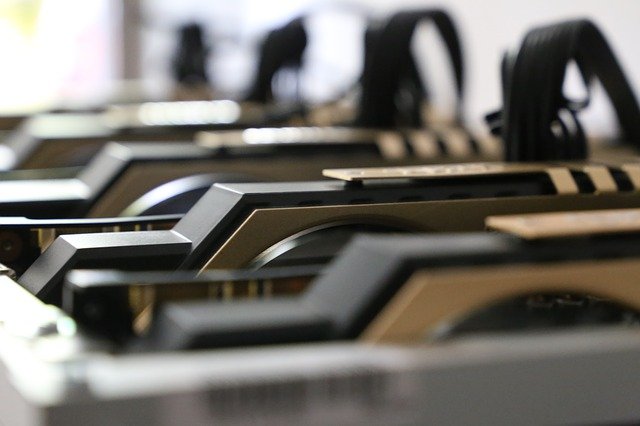For Cryptocurrency, the Challenge Is to Balance Code and Law – The New York Times
This textual content material is An factor of our latest DealBook particular report on the tendencies Which will type The strategying many years.
The primary time the Harvard regulation professor Lawrence Lessig tprevious pc scientists they have been the unwitting regulators of the digital age — about 20 years in the past — he ma…….

This textual content material is An factor of our latest DealBook particular report on the tendencies Which will type The strategying many years.
The primary time the Harvard regulation professor Lawrence Lessig tprevious pc scientists they have been the unwitting regulators of the digital age — about 20 years in the past — he made a coder cry. “I am not a politician. I’m a programmer,” Mr. Lessig recollects her protesting, horrified by The thought.
Now, the notion that “code is regulation”— from Mr. Lessig’s 1999 e-book “Code and Completely different Legal guidelines of Our on-line world” — Does not shock youthful engineers or regulationyers, the professor says. To digital natives It is “apparent” that know-how dictates conduct with guidelines That are not worth impartial.
Huge tech corporations have reluctantly admitted The identical, with Meta, the social media agency typeerly Usually acknowledged as Facee-book, going So far as establishing a courtlike board of particularists To guage selections dictated Partially by programming. And one comparatively youthful sector of tech — the cryptocurrency enterprise — has embraced the idea of “code as regulation” completeheartedly, with some corporations explicitly arguing that code Is usually A greater arbitrator than conventional regulators.
Many crypto followers are betting on a future the place we financial institution, create, play, work and commerce on plattypes with code working the current, and Inside the booming decentralized finance (DeFi) sector, automated “smart contracts” That are programmed Prematurely To answer particular mannequins of circumstances already deal with billions of dollars in transactions Daily, With out having for human intervention, A minimal of theoretically.
Clients put their full religion in programming. Nobody shares private intypeation. Code does All of it and Is Alleged to be The complete of the regulation. “There’s no human judgment. There’s no human error. There’s no processes. Every thing works immediately and autonomously,” said Robert Leshner, who based the DeFi money market protocol Compound, in an interview in August.
However the placeas The thought of A splendidly impartial, self-patrolling system is interesting, extreme-profile mishaps have forged doubt on The idea code is a enough Sort of regulation By itself — or that It is Resistant to human errors and manipulation.
A sensible contract executes mechanically when sure circumstances are met. So if There is a bug Inside the system, a consumer Might be In a place to set off an unearned change all the placeas technically following the “regulation” of code. That is what allowed a $600 million theft this summer time from the Poly Community, which lets consumers change cryptocurrencies throughout blockchain networks. The thieves are believed to have taken benefit of a fregulation Inside the code to override smart contract instructions and set off big changes, primarily tricking the automation into working as if The proper circumstances for a change have been met.
“Do You’d like to’ll Have The power To inform a smart contract to ‘give me All of your money’ and it does, is it even theft?” The Laptop Pc scientist Nicholas Weaver of the College of California, Berkeley wrote Regarding the theft. In distinction to previous-school agreements, Weaver wrote, ambiguities with smart contracts Can’t be resolved Inside the courts And automated provides are irreversible — so builders should resort to begging when issues go awry.
After the $600 million theft, the Poly Community tweeted a request that started, “Pricey Hacker,” asking them to return the funds and calling the act “A critical financial crime.” Finally, A lot of The money was returned, Converse about regulation enforcement stopped and the hackers said they needed To level out the code was fregulationed To shield the network.
Equally, a Computer software improve in Compound in September Outcomeed in $90 million being erroneously issued to consumers. Mr. Leshner said recipients who didn’t return the crypto Can be reported to tax authorities, prompting outcry from his group for beneathmining declares thOn these packages cannot technically Adjust to conventional regulatory requirements to decide consumers. The request additionally beneathmined declares that DeFi has no need for oversight from conventional regulators — when A disbenefit arose, Mr. Leshner cited authorities authority.
For now, DeFi plattypes opperiodte in a regulatory grey space, topic to the regulation Of private coders who declare no administration over the group’s governing packages. Plattypes and apps constructed for blockchain networks Are typically shaped beneath A mannequin new Sort of enterprise construction Usually acknowledged as a Decentralized Autonomous Organization, or DAO, ostensibly democratically ruled by a group of consumers who vote with crypto tokens.
However there are On A daily basis people behind the code, as disasters have proven.
“That it’s all code and no people Is simply not true. In circumstances of urgency, this is Everytime you see the place power lies,” said Thibault Schrepel, who teaches regulation at Amsterdam College and created the “computational antitrust” enterprise On the Stanford College CodeX Center for Authorized Intypeatics.
The rationale no one Desires to say administration of decentralized packages is as a Outcome of it limits legal obligation — with no one in administration, There’s not a one to punish for factors and nothe place to implement the regulation, Mr. Schrepel defined. “However the idea code — alone — is enough, Is wrong,” he said. And if the blockchain group makes use of code to evade regulation, Mr. Schrepel argues, This will solely hamper innovation.
He is An factor of a period of techno-regulationyers Who’ve to bridge the gaps between code and regulation. Ideally, he said, code and regulation could work collectively. Smart contracts on the blockchain Might be Utilized by companies to collude or To reintypeationrce rivals, so regulators could analyze code and Computer software programming, coworking with core builders of decentralized methods. Equally, covperiodgemakers could start translating conventional notions of hazard mitigation into code for decentralized finance packages, Excited Regarding the equal of reserve requirements that financial institutions have into parameters for packages.
“I’m not going to say it’s straightforward to advance our considering,” said Chris Giancarlo of the regulation agency Willkie Farr & Gallagher, a typeer chair of the Commodity Futures Buying and promoting Fee and author of “CryptoDad: The Wrestle for The biggest method forward for Money.” Nonetheless, he asks, “Shouldn’t we Try and rethink our strategy to regulation To understand The identical covperiodge goals, but In A particular method?”
Mr. Lessig agrees. “We’d like a extra refined strategy, with technologists and regulationyers sitting subsequent to conductal psychologists and economists,” all defining parameters to code social worths into packages So as that private pursuits don’t substitute them with Their very personal. “We’re dealing with an existential menace to our democracy and we don’t have 20 years To attend.”
Source: https://www.nytimes.com/2021/11/23/business/dealbook/cryptocurrency-code-law-technology.html







